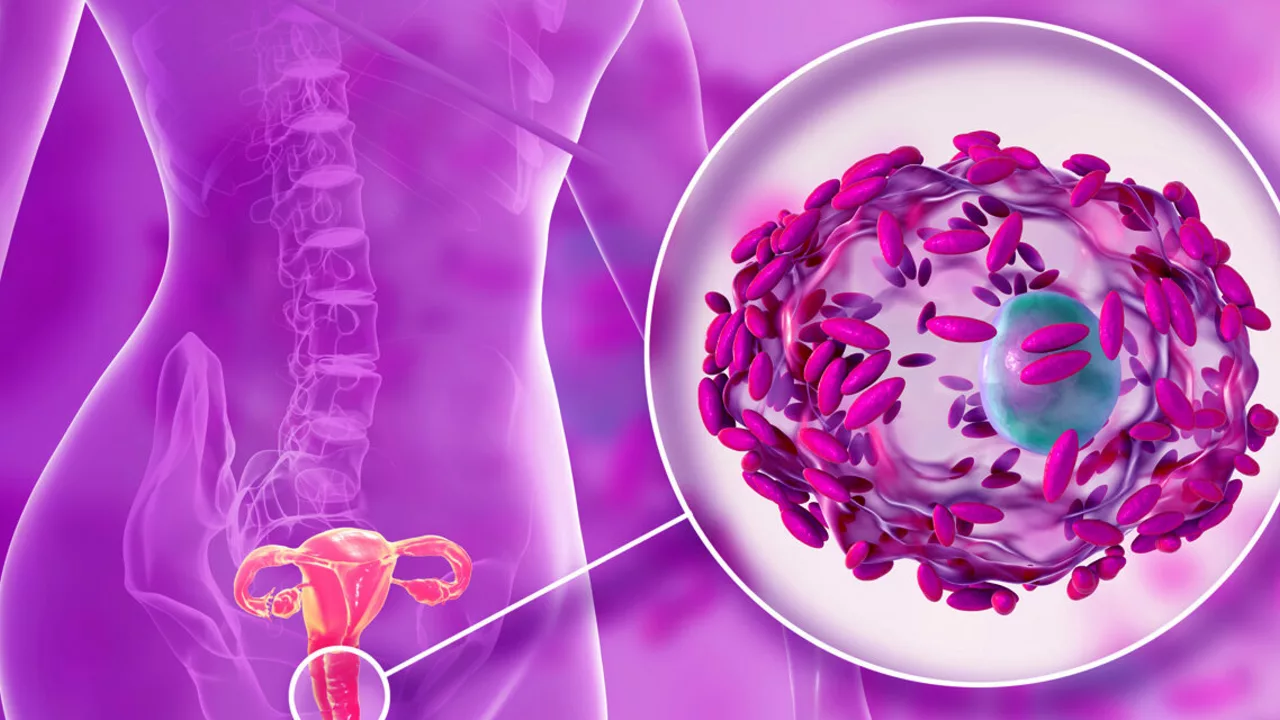Vaginal infections and the use of antibiotics: What you need to know

Understanding Vaginal Infections
As a woman, understanding the workings of your body is crucial, and vaginal infections are a part of this knowledge. These infections are common and can be caused by various factors, including bacteria, yeast, or parasites. Symptoms can range from itching and a burning sensation to unusual discharge and unpleasant odor. While some infections might resolve on their own, others necessitate medical attention. It's always vital to consult a healthcare professional if you suspect you have a vaginal infection, to ensure proper diagnosis and treatment.
Antibiotics and Their Role in Treating Infections
Antibiotics are powerful drugs used to treat bacterial infections. They work by either killing bacteria or preventing them from multiplying. When it comes to vaginal infections, antibiotics are typically used to treat those caused by bacteria or parasites. However, it's important to remember that antibiotics are not effective against infections caused by yeast. It's crucial to use antibiotics exactly as prescribed by your healthcare provider to prevent the development of antibiotic-resistant bacteria.
Common Antibiotics Used for Vaginal Infections
There are several types of antibiotics that can be prescribed for vaginal infections, depending on the type of bacteria causing the infection. Metronidazole is commonly used to treat bacterial vaginosis, while Tetracyclines are often prescribed for chlamydia and other sexually transmitted infections. Ceftriaxone is another antibiotic used for treating gonorrhea. Always remember that the type of antibiotic prescribed will depend on the specific infection and your medical history.
Side Effects of Antibiotics
Like all medications, antibiotics can cause side effects. Common side effects include nausea, diarrhea, and stomach pain. In some cases, antibiotics can also cause a vaginal yeast infection, due to the disruption of the normal vaginal flora. If you experience any severe or persistent side effects while taking antibiotics, it's essential to consult your healthcare provider right away. It's also worth noting that taking antibiotics when they're not needed can lead to antibiotic resistance, a growing global health concern.
Prevention and Self-Care
While antibiotics can effectively treat many vaginal infections, prevention is always better than cure. Maintaining good vaginal hygiene is key. This includes avoiding douching, wearing cotton underwear, and changing sanitary products regularly during your period. Additionally, eating a balanced diet, getting regular exercise, and practicing safe sex can also help prevent vaginal infections. If you do get an infection, remember to take care of yourself by resting, staying hydrated, and completing your full course of antibiotics, even if you feel better before they're finished.
When to Consult a Doctor
While some minor vaginal infections can be treated at home, it's important to seek medical attention if symptoms persist or worsen. If you have a high fever, severe abdominal pain, or if the infection returns after treatment, these could be signs of a more serious problem. Always remember that your health is paramount, and seeking professional help when you need it is the best course of action. Don't let embarrassment or fear prevent you from getting the care you need.






Comments
Kyle Garrity
July 12, 2023 AT 11:10Reading through this, I can totally see why a lot of folks feel overwhelmed when they first spot the symptoms of a vaginal infection. It's not just the physical discomfort; the emotional side can be just as tricky, especially when you're worried about what it means for your overall health. First off, know that you're not alone-millions of women experience similar issues at some point in their lives. Second, getting a proper diagnosis from a qualified healthcare professional is absolutely essential; self‑diagnosing can lead to unnecessary stress and possibly the wrong treatment. If you get a bacterial infection, antibiotics can be a lifesaver, but they must be taken exactly as prescribed to avoid resistance. On the flip side, if it's a yeast infection, antibiotics won't help and could actually make things worse, so distinguishing between the two is key. Many people also overlook how antibiotics can disrupt the natural flora, sometimes sparking a secondary yeast infection, which feels like a cruel double whammy. To mitigate that, consider probiotic‑rich foods or supplements after finishing your course, but always run that by your doctor first. Maintaining good hygiene-like opting for cotton underwear and steering clear of douching-creates a healthier environment for your microbiome. Staying hydrated, eating a balanced diet, and getting regular exercise also play a supportive role in your immune system's ability to fight off infections. If side effects from antibiotics bother you, don't just power through; reach out to your provider; they might adjust the dosage or suggest an alternative. Remember, completing the full course of antibiotics, even if you feel better early on, is crucial to fully eradicate the infection and prevent recurrence. And if you ever feel embarrassed about seeking help, push that feeling aside-your health comes first, and doctors are there to help, not judge. Lastly, keep an eye on any persistent or worsening symptoms; a high fever or severe pain should trigger an immediate medical visit. Take care of yourself, both physically and emotionally, and know that with the right steps, you can get through this and come out stronger.
brandon lee
July 12, 2023 AT 12:00Cool info, thanks for breaking it down.
Joshua Pisueña
July 12, 2023 AT 12:50Hey everyone staying on top of your health is a power move
Remember that antibiotics are a tool not a cure‑all, use them wisely and always finish the prescription
If you feel off after a course, talk to your doc about probiotics or a follow‑up test
Keep your routine simple: cotton underwear, no douching, and regular check‑ups
You’ve got this!
Ralph Barcelos de Azevedo
July 12, 2023 AT 13:40While the article is comprehensive, it glosses over the moral responsibility we each bear in combating antibiotic resistance. Overprescription is not merely a medical oversight; it reflects a deeper societal neglect for future generations. Every unnecessary pill taken compounds the global crisis and endangers those who truly need these drugs. We must demand stricter stewardship from our physicians and be vigilant about not demanding antibiotics for viral ailments. Personal hygiene tips are useful, but the true battle lies in our collective attitude towards medication.
Peter Rupar
July 12, 2023 AT 14:30What a load of nonsense this is lol. Who even reads these fluffy posts? The only thing that matters is you stop acting like a victim and get your act together. People are so weak, they think a little itch means the world’s ending. Stop blaming doctors, they’re doing the best they can, you just need to stop being a drama queen. If you cant handle a simple course of meds, then maybe you belong in a different country where people actually know how to live without whining. Grow up.
Nikita Shue
July 12, 2023 AT 15:20Listen, it’s crucial to take antibiotics exactly as directed, otherwise you’re just feeding resistant bugs. At the same time, don’t let the fear of side effects stop you from finishing the course – that’s how relapses happen. If you notice any severe reactions, flag it to your doctor immediately; they can adjust the treatment plan. Also, remember that maintaining a balanced diet and staying hydrated helps your body recover faster. Stay assertive about your health, but also stay cool and let the professionals guide you.
Heather McCormick
July 12, 2023 AT 16:10Oh great, another “guide” that pretends we’re all clueless about our own bodies. Of course I knew antibiotics don’t kill yeast – it’s basic biology, not some secret. And let’s not forget the real issue: the American healthcare system pushes meds like candy while ignoring real prevention. If you’re from the US, you’re probably over‑diagnosed and over‑prescribed. So, thanks for the obvious, but maybe aim for something that actually challenges the status quo next time.
Robert Urban
July 12, 2023 AT 17:00Appreciate the thorough breakdown – it’s a solid reminder that we all share the same microbiome battles. While it’s easy to get caught up in the panic of side effects, a measured approach with doctor oversight can keep things in check. Let’s also remember to support each other, whether it’s sharing tips on soothing comfort measures or just giving a nod of encouragement. Keep the conversation respectful and fact‑based, and we’ll all get through this without unnecessary drama.